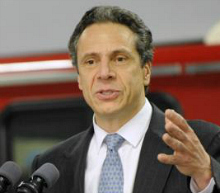New York Governor Andrew Cuomo has identified the incident where a bomb went off from inside a dumpster in New York’s Chelsea neighborhood, injuring 29 people, as an act of terrorism.
“I said yesterday I believed it was an act of terrorism,” Cuomo said in a September 19 press briefing at New York’s Penn Station. “By definition, terrorism is taking an action that endangers human life that appears to be intended to cause intimidation or coercion. I believe you set off a bomb, you try to set off a second bomb. That’s an appearance of trying to intimidate New Yorkers.”
The suspect, Ahmad Khan Rahami, was taken into custody after firing at police officers in Linden, New Jersey, although Governor Cuomo stated in a September 20 call with CNN that authorities are investigating the possibility that Rahami was not working alone.
While it appears that property damage from the incident was not large enough to trigger the terrorism insurance program, there could be other ramifications for businesses affected by business interruption as a result of the event, according to the vice president of communications at the Insurance Information Institute, Loretta Worters, who encourages business owners to take a close look at their insurance policies.

“Terrorism is not generally covered under business interruption insurance, so the language could be important if this was indeed determined a terrorist attack,” Worters said. “Businesses that were affected by the explosion should contact their insurance professional as soon as possible.”
Business interruption insurance covers financial losses that occur when a firm is forced to suspend business operations either due to direct damage to its premises or because civil authorities limit access to an area, preventing entry to the business. Coverage depends on the individual policy, but it usually begins after a waiting period of 24 to 72 hours and lasts for a period of two weeks to several months, Worters explained. The coverage generally reimburses a business owner for lost profits during the time period when the business wasn’t operational.
The concern for insureds, however, goes back to 2002 when insurers began to exclude terrorism from policies, pricing it separately following the September 11 terrorist attacks in New York. In response, Congress passed the Terrorism Risk Insurance Act (TRIA), creating a public-private loss program that is contingent on damage of at least $5 million, as determined by the U.S. Treasury Secretary.
“That law established the $5 million threshold for coverage to kick in,” Worters said.
This could lead to problems for businesses suffering interruption losses in the wake of a terrorist attack, particularly smaller businesses.
“Sometimes people tend to think insurance covers everything, but for a small business, a couple of weeks without revenue would be a huge loss,” said Dr. Erwann Michel-Kerjan, executive director in the Risk Management and Decision Processes Center at Philadelphia’s Wharton School of Business. “Maybe more small business owners will take a look at what just happened and ask, ‘Are we adequately covered? Is there an insurance gap here in terms of what I could purchase as a business owner?’ Similarly, maybe more insurance companies will ask themselves if there are products they could propose to clients that would be more tailored to these type of attacks.”
This is because reductions in business income associated with fear of traveling to a location, in addition to closure of areas by authorities because of a heightened state of alert after an attack, would not be covered by general business interruption policies, Worters said.
That said, a standalone terrorism insurance policy could be important for businesses concerned about losses due to terrorism, although it is important to check with insurance agents on a case-by-case basis, according to Tarique Nageer, terrorism placement advisory leader at Marsh U.S.
“If you have a standalone terrorism policy, that’s a policy that is not dependent on TRIA,” Nageer said. “Those policies could have a broad definition of contingent business interruption, so theoretically, you could be able to collect from those policies if it was a terrorism event. A standalone terrorism policy does not require the U.S. government to certify an event as an act of terrorism.”
Although it is too early to tell if business interruption losses were suffered as a result of the recent incident, it is important for clients to take a close look at their policies and carefully consider their decisions when purchasing terrorism insurance going forward, Nageer explained.
“Many clients don’t have to be a target of an act of terrorism to suffer a loss – anyone in the vicinity of a terrorism event or near a trophy property could suffer a terrorism loss just being where they’re located,” he said. “Clients should be aware of that and take that into consideration when deciding what to buy in terms of insurance.”
Following the Boston Marathon bombings in 2013, Massachusetts regulators heard complaints from some businesses that thought they were covered under the policies and insurance brokers reported that more smaller and medium-sized firms were buying terrorism coverage.
Related:
- New York Bombing Suspect in Custody, Investigation Continues
- Businesses, Insurers Tangle Over Boston Marathon Loss Payouts
- Boston Marathon Attacks Convinced Smaller, Midsized Firms to Buy Terror Insurance
- Experts Weigh Boston Bombings’ Impact on Government-Backed Terrorism Insurance
- Boston Bombing Lesson: Risk Managers Urge Better ‘Terror Act’ Certification
- Religious Extremists, ‘Lone Wolf’ Attacks Changing Political Risk Landscape
- Marsh: Industry Must Adapt to Meet Changing Terrorist Threats
Was this article valuable?
Here are more articles you may enjoy.



 JPMorgan Client Who Lost $50 Million Fortune Faces Court Setback
JPMorgan Client Who Lost $50 Million Fortune Faces Court Setback  Investment Funds File New Suits Over Lighthouse Insurance Collapse in 2022
Investment Funds File New Suits Over Lighthouse Insurance Collapse in 2022  Progressive Gains as Drivers Shop Around for Auto Insurance—Again
Progressive Gains as Drivers Shop Around for Auto Insurance—Again  North Carolina Adjuster and Son Charged With Embezzlement in Roof Jobs
North Carolina Adjuster and Son Charged With Embezzlement in Roof Jobs 


